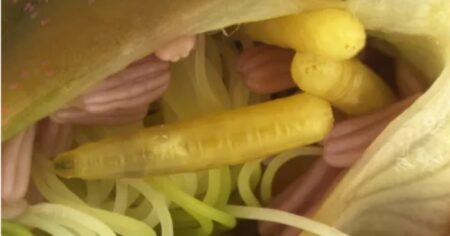According to USDA’s Crop Progress report released earlier this week, both the soybean and corn harvests in Nebraska are moving faster than normal as of Oct. 21. Here’s a look at the season so far, according to an agronomist and pie charts.
Corn Harvest and Yield
Nebraska has jumped to 63% complete with its corn harvest as of Oct. 20, USDA said. After being at 45% complete on Oct. 13, the 18 percentage point jump puts Nebraska well ahead of the five-year average of 51%. Nebraska’s corn is at 98% mature, right in line with five-year averages.
Nebraska-based Agronomy Service Representative Travis Gustafson said many people in the state have completed harvest already, with the finish line in sight for others. Yields are holding steady under irrigation, Gustafson said, at 260 to 280 bushels per acre.
Soybean Harvest and Yield
Nebraska is 85% complete with its soybean harvest as of Oct. 20, USDA said. This mark is five percentage points ahead of the five-year average of 80%, and ahead of progress from the same week last year.
Yields in Nebraska have been more varied for soybeans than corn, Gustafson said.
“Soybean yields in Nebraska were strong but they dropped off as the beans got dry,” Gustafson said. “This was due to either excessive moisture loss or pod shatter/harvest losses in the field.”
Weather and Days Suitable for Fieldwork
Weather in Nebraska has been consistent, Gustafson said — hot and dry. This weather has lent itself to quick harvesting and has made grain storage in bins or piles, but he cautioned that “grain that is over dry in farm storage, [conditions] could cause excessive cracking… reducing quality when farmers pull it out of bins.”
Nebraska had 6.7 days suitable for fieldwork in the week ending Oct. 20, down slightly from 6.9 days in the week ending Oct. 13. The end of October is supposed to provide some much-needed rain for the state, with the National Weather Service’s Climate Prediction Center (CPC) predicting Nebraska will have above-average precipitation for Oct. 28 through Nov. 1.
Drought Monitor
Dry weather has led to 100% of Nebraska experiencing drought stress, with 82.8% experiencing at least moderate drought.


:max_bytes(150000):strip_icc()/a-case-of-bird-flu-in-a-missouri-resident-is-the-only-diagnosis-in-the-united-states-this-year-where-the-person-did-not-have-contact-with-infected-dairy-cattle-or-poultry-photo-by-stephen-ausmus-animal-research-services-usda--7c1d7d4efa6b462ea385a2d18133ecbf.jpg)
:max_bytes(150000):strip_icc()/Congress-WideShot-2000-5a91ee8f6de542dfa39fc245aef88653.jpg)
:max_bytes(150000):strip_icc()/170922-4-2000-4834775372984ffebde18f6186834c2d.jpg)


:max_bytes(150000):strip_icc()/ScentralNEcorn1025-f50f3c8d587d4dbab8faf345e1e938ac.png)
:max_bytes(150000):strip_icc()/Soybeans-WormsEye_0-2000-4afb8f4a21ee4a21a0abcd19ccd4272d.jpg)
:max_bytes(150000):strip_icc()/GettyImages-1230443499-cd9bc00947124ee2a91459ec874bf886.jpg)
